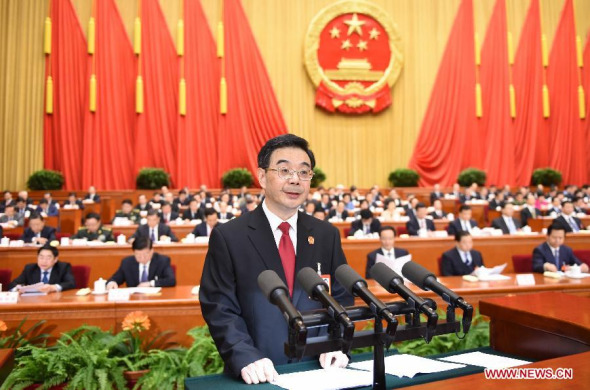

Zhou Qiang, president of China's Supreme People's Court (SPC), delivers a report on the SPC's work at the third plenary meeting of the second session of China's 12th National People's Congress (NPC) at the Great Hall of the People in Beijing, capital of China, March 10, 2014. (Xinhua/Li Xueren)
China's chief justice Zhou Qiang delivered a report on the work of the Supreme People's Court to the National People's Congress, China's top legislature, on Monday. [Special coverage]
China's chief justice pledges to fight terrorism
China's chief justice Monday pledged to severely punish terrorists in cases like the Kunming railway station attack, in an outline for the courts' work in 2014.
Chinese courts will work to safeguard national security and social stability and help build up people's sense of security, said Zhou Qiang, president of the Supreme People's Court (SPC), when delivering a work report of the SPC at the second session of the 12th National People's Congress (NPC). >>>
Chief justice warns of weakness, pledges reform in court system
Chief Justice Zhou Qiang warned against some judges' bureaucracy and misconduct Monday, when elaborating problems in China's court system.
"Some judges and court staff showed bureaucracy at work and enjoyed privileges. They were indifferent to litigants and some even took bribes and bent the law for personal ends. People are angry with them," said Zhou. >>>
Copyright ©1999-2018
Chinanews.com. All rights reserved.
Reproduction in whole or in part without permission is prohibited.